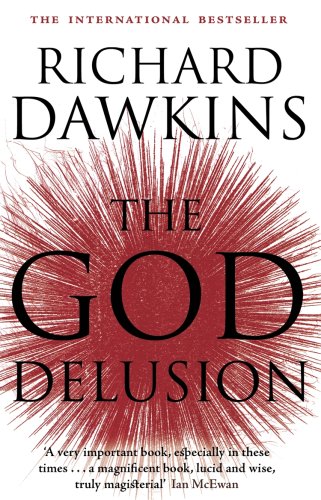| Index |
Commentary - Wayne |
Discussion |
References |
| Commentary - General |
1. As a young person, growing up in the church, I learned that the two biggest threats to faith were atheism and
doubt. Over my lifetime I have changed my views and consider that both atheism and doubt can be helpful challenges to a growing faith. I take that learning into this study and the text we are using - ³The God Delusion³ -
which was written by Richard Dawkins, a professed atheist.
2. Traditional ways of knowing and describing God are undergoing considerable scrutiny in society today. In the past, many of these debates between believers and atheists were conducted in the academy. Now, they are openly discussed in the public square. Science is forcing is to look differently at time-honoured truths and ways of understanding reality.That is not a bad thing.
3. I believe that authority is at the core of this particular debate. To what authority do we ultimately appeal when dealing with ¹existence of God questions? The Bible? The Church? Human reason or experience? A combination
of all of the above? In the event of dispute, who or what is the arbitor?
4. I believe that the time is ripe for a serious debate about atheism and would not be surprized if God is behind such developments! Every so often in history, God in Gods infinite wisdom decides to shake up institutions and belief-systems; upsetting religious leaders and followers alike. This kind of upset is needed because humans have a tendancy to become complacent or self-righteous. We accept man-made doctrines and religious institutions too easily. A good atheist can, therefore, be a very helpful corrective to a lot of fuzzy and lazy thinking.
5. Sometimes it is the person or the movement we resent the most, or least want to engage, that can help us the most with such ³God-initiated³ upsets. Jock and I believe that Richard Dawkins may be just such person. He calls himself a ³consciousness-raiser³ in his preface, and I believe he can do that for us.
6. As this course develops, Jock and I believe that you expect both content from us, as well as freedom to express yourselves and learn from each other in plenary and small group discussions. Some of you participate by listening. Others contribute by speaking. We believe that you should follow your inclinations. We hope to offer you thoughtful and thought-provoking presentations (both verbal and audio-visual, with our new power-point projector) and anticipate good participation from you too!
We are always seeking ways to improve these studies and we appreciate your help! |
| Summary of Discussion Notes |
Small Group Discussion Questions:
1. What issues and concerns drew you to this study?
2. What themes would you like us to emphasize during this course?
What is atheism stuff anyway?
Why is there such a need for certainty?
They (the 4 horsemen) disparage faith rather strongly.
Listening to others helps clarify our own view.
Atheists seem to focus on the present.
Religion seems to allow anything to be said.
Moderates aren't free of criticism.
Might the lack of discrimination be the lack of thinking?
Why are moderates not speaking up in the various religions?
Holland accepts people without any position on religion, and are new to
Islamic intolerance.
How does one create an environment of non-prejudice, yet open to constructive
criticism?
When we defend faith, it is not necessarily a fixed package.
We're concerned about becoming atheists ourselves, and about answering
their arguments.
We've a sketchy idea as to who an atheist is and want to educate ourselves.
We'd like credible ammunitions in this battle, and want to challenge our
own belief.
The concensus is that this was good food for thought.
Other flavours of Christianity are differently open.
There are differences of openess between laity and clergy also.
Part of me is a professional at work and part of me is a mystic on a faith journey.
It is rare, the number of times you see or hear moderates.
When Mother Theresa was getting her peace prize, she spoke about abortion.
This offends some, and yet all admire her actions.
We know persons who are in the sciences and yet are also religious. It
doesn't seem so unusual.
The progressive voices are too often silent. |
 |
 Clicking the icon left will activate the e-mail on your machine and direct
your comments to us. Comments are welcome and will be posted with usual
editorial courtesies. St. David's United Church.Calgary, Alberta, Canada. Jan 2008 Clicking the icon left will activate the e-mail on your machine and direct
your comments to us. Comments are welcome and will be posted with usual
editorial courtesies. St. David's United Church.Calgary, Alberta, Canada. Jan 2008 |
